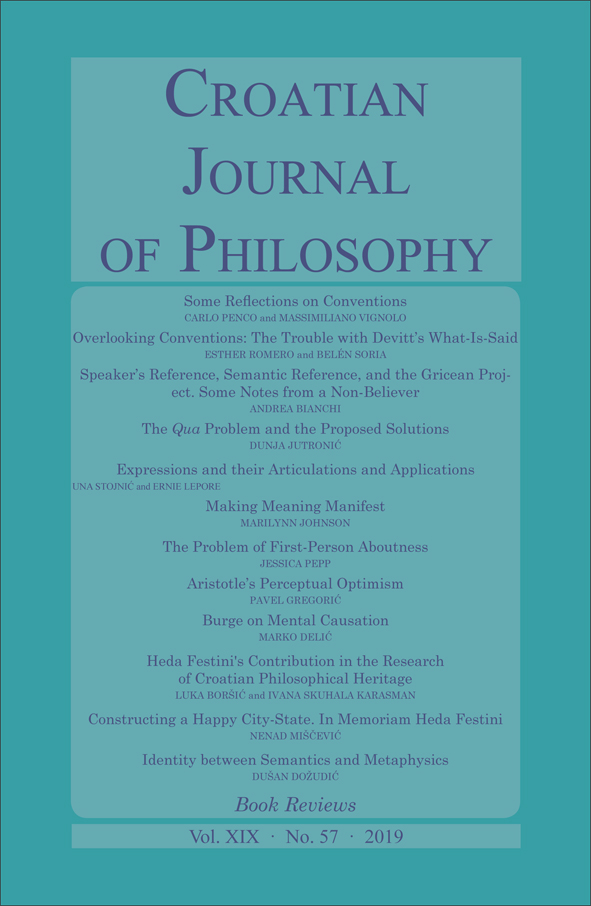Aristotle’s Perceptual Optimism
Aristotle’s Perceptual Optimism
Author(s): Pavel GregorićSubject(s): Epistemology, Ancient Philosphy
Published by: KruZak
Keywords: Senses; direct realism; qualities; sensibles; veridicality; Democritus;
Summary/Abstract: In this paper, I would like to present Aristotle’s attitude to sense-perception. I will refer to this attitude as “perceptual optimism”. Perceptual optimism is, very briefly, the position that the senses give us full access to reality as it is. Perceptual optimism entails perceptual realism, the view that there is a reality out there which is accessible to our senses in some way or other, and the belief that our senses are veridical at least to some extent, but it is more comprehensive than that. For instance, a perceptual optimist does not admit such things as qualities which are perceptible in principle but not by us or bodies too small to be perceptible. In this paper I argue that Aristotle is a perceptual optimist, since he believes that reality, at least in the sublunary sphere, is indeed fully accessible to our senses. In the first and largest part of this paper, I will show, in seven distinct theses, what Aristotle’s perceptual optimism entails. In the second and shorter part, I will put Aristotle’s position in a wider context of his epistemology and show why it was important for him to be a perceptual optimist.
Journal: Croatian Journal of Philosophy
- Issue Year: XIX/2019
- Issue No: 57
- Page Range: 543-560
- Page Count: 18
- Language: English
- Content File-PDF

